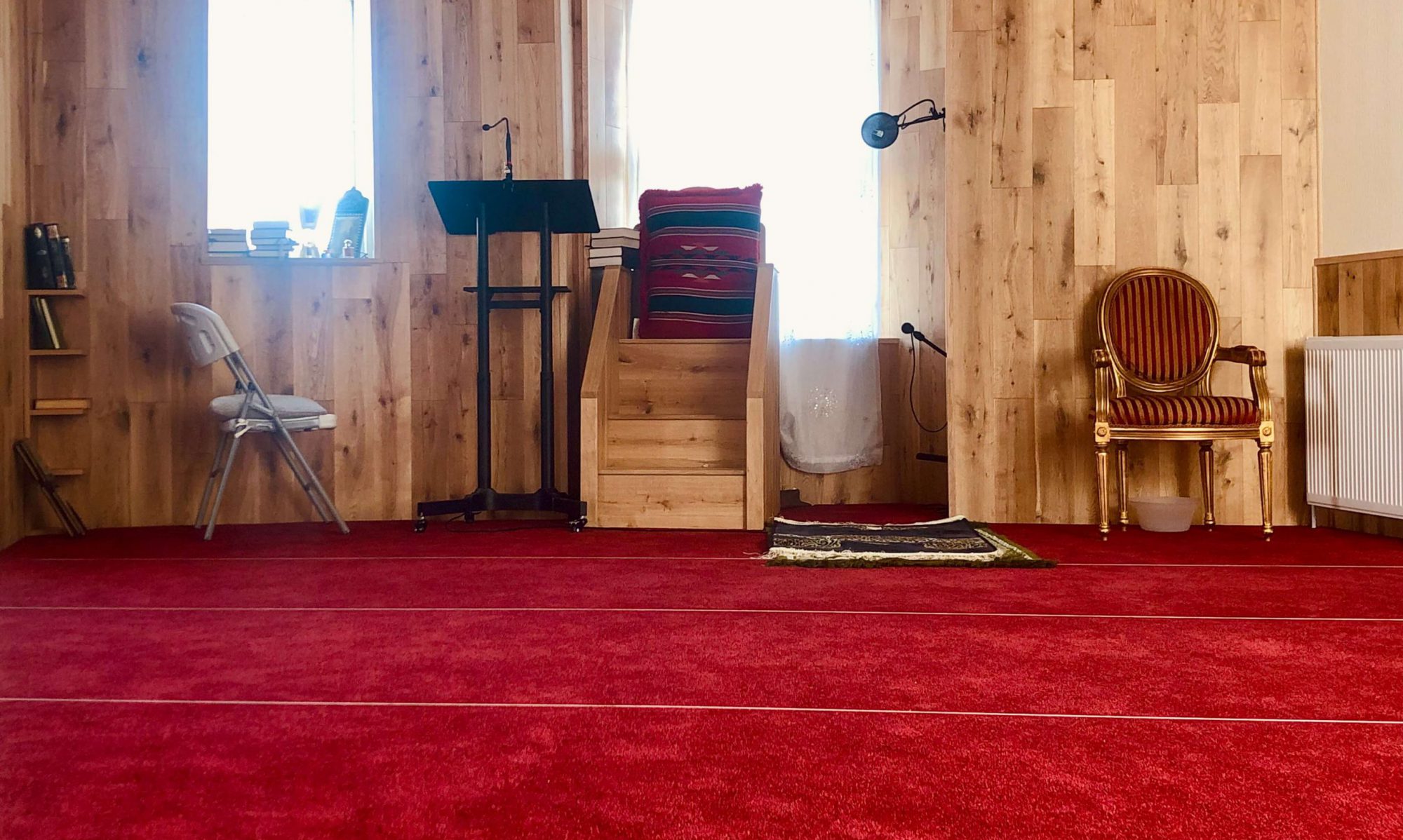Written by Noorislam Uddin (MArch)
وَأَمَّا ٱلَّذِينَ فِى قُلُوبِهِم مَّرَضٌۭ فَزَادَتْهُمْ رِجْسًا إِلَىٰ رِجْسِهِمْ وَمَاتُوا۟ وَهُمْ كَـٰفِرُونَ
[Quran 9:125]
Waàmmá allavína fie qulúbihim mmaroḍuń fazádathum rijsana ìlaē rijsihim wamátúa wahum kāfirúna
When the Arabs cooked over an open fire, the pot would often get hot enough to start vibrating. The word used for this phenomenon, where it was neither in motion, nor completely still, was [ قَلْقَلَة ] qolqolaḧ (lit. ‘shaking’). In Arabic phonetics, the word refers to a characteristic found in a group of 5 plosives – letters that require a quick exhalation of air to fully pronounce. These are [ ـب ] Bâ, [ ـج ] Jím, [ ـد ] Dál, [ ـط ] Ṭô, and [ ـق ] Qóf. To illustrate the importance of properly expressing plosive letters, Consider if you ever once told someone to, “Stop!”. The letter ‘p‘ at the end is a plosive letter. Say the word with your hand to your mouth. You should notice a small bust of air after saying that letter. Now pronounce the word but finishing short at the last letter without breathing out. It does not have the same passion to it. In fact, it would be audibly indistinguishable from the word ‘stock‘ for example, which also ends with a plosive letter, if you did the same thing. Similarly in Arabic, it is vital to express this burst of air with any of the five plosive letters if they are to be clearly distinguished in speech. The letters can be summarised in the Arabic mnemonic [ قُطبِ جَد ] quṭbi jad. There are 2 forms of qolqolaḧ plosion explained below:
- Small plosion (Qolqolaḧ uṣṣugroe)
- Large plosion (Qolqolaḧ ulkubroe)
5.a) Small plosion (Qolqolaḧ uṣṣugroe)
Priority: Recommended
This type of plosion should be restrained enough when employed to avoid ambiguous recitation. It appears when one of the five Arabic qolqolaḧ plosive letters inside a word has a permanent sukún pause – thus followed by another consonant. The burst of plosive air made pronouncing such a letter is ‘small’ due to the immediate need to pronounce the letter after it.
Notes:
• The extent of the small plosion should be subtle enough to hear, though not exaggerated as to permit the interpretation of a vowel sound after the plosion letter – since there is not
E.g.
وَأَمَّا ٱلَّذِينَ فِى قُلُوبِهِم مَّرَضٌۭ فَزَادَتْهُمْ رِجْسًا إِلَىٰ رِجْسِهِمْ وَمَاتُوا۟ وَهُمْ كَـٰفِرُونَ
[Quran 9:125]
Waàmmá allavína fie qulúbihim mmaroḍuń fazádathum rijsana ìlaē rijsihim wamátúa wahum kāfirúna
أَلَّا تَطْغَوْا۟ فِى ٱلْمِيزَانِ
[Quran 55:8]
Àllá taṭgoua fie almízáni
وَإِن طَآئِفَتَانِ مِنَ ٱلْمُؤْمِنِينَ ٱقْتَتَلُوا۟ فَأَصْلِحُوا۟ بَيْنَهُمَا ۖ فَإِنۢ بَغَتْ إِحْدَىٰهُمَا عَلَى ٱلْأُخْرَىٰ فَقَـٰتِلُوا۟ ٱلَّتِى تَبْغِى حَتَّىٰ تَفِىٓءَ إِلَىٰٓ أَمْرِ ٱللَّهِ ۚ فَإِن فَآءَتْ فَأَصْلِحُوا۟ بَيْنَهُمَا بِٱلْعَدْلِ وَأَقْسِطُوٓا۟ ۖ إِنَّ ٱللَّهَ يُحِبُّ ٱلْمُقْسِطِينَ
[Quran 49:9]
Waìń ṭõìfatáni mina almu-minína aqtatalúa faàṣliḥúa bainahumá, faìň bagot ìḥdāhumá ‘alae alùcroē faqōtilúa allatie tabgie ḥattaē tafaẽ-a ìlaẽ àmri Alllāhi; Faìń fãàt faàṣliḥúa bainahumá bial’adli waàqsiṭũa, ìnna Alllōha yuḥibbu almuqsiṭína
1.b) Temporary heaviness (Tafcím ul’áriḍ)
Priority: Recommended
• This instance of plosion is often exaggerated due to being the larger of the two types. It appears when a reciter stops at an Arabic word ending in one of the five Arabic qolqolaḧ plosive letters. The word can end on such a letter either via a permant sukún pause – most often seen in imperative verbs, or via a temporary sukún pause (also see introduction to lesson set 7. Stop Signs). The burst of plosive air made pronouncing such a letter is ‘large’ due to the time given by the moment of silence after it.
Notes:
This category of plosion is often split into two on the belief that ending on a plosive letter via a sukún pause – so called ‘medium’ plosion – is different from ending on a shaddaḧ double plosive letter – so called ‘large’ plosion. This distinction is a myth. Since a letter with a shaddaḧ double diacritic over it is equivalent to two of the same letter with the first having a sukún pause, stopping on a double plosive letter evokes the same amount of plosion as stopping on a single plosive letter
E.g.
بَلِ ٱلَّذِينَ كَفَرُوا۟ فِى تَكْذِيبٍۢ
[Quran 85:19]
Bali allavína kafarúa fie takvíbiņ
وَٱللَّهُ مِن وَرَآئِهِم مُّحِيطٌۢ
[Quran 85:20]
WaAlllōhu miņ warõ-ihim mmuḥíṭuň
بَلْ هُوَ قُرْءَانٌۭ مَّجِيدٌۭ
[Quran 85:21]
Bal huwa qur-ánuņ mmajíduń
Allah knows best.
Last updated:
Further tajwíd enhancement study:
- Arabic 101 [Last Updated November 10, 2023], The BEST 30-day Tajweed Program (Intermediate). https://www.youtube.com/playlist?list=PL6TlMIZ5ylgoA27YCmZYMCQCX7EUkfyHp.
- Tajweed.me [February 13, 2013], Tajweed Me All for Quran and Tajweed. https://tajweed.me/tag/tajweed-rules.
- Getquranic.com [November 1, 2021], A Quick Guide to Tajweed. https://www.getquranic.com/a-quick-guide-to-tajweed/#Ikhfaa_to_hide.
Jazak-Allah for reading. All knowledge, opinions, and translations expressed in our articles are the earnest study and reflections of the writer, prioritising honest interpretations of the Quran and authentic Hadith as evidence. We ask for forgiveness for presenting any information that comes to be incorrect or misleading, and accept that Allah is the Most-Knowing One.
